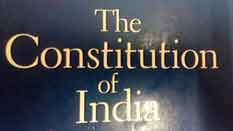Modern Approaches To Resolving International Disputes In The 21st Century
This abstract explores the evolving landscape of international dispute
resolution methods in the contemporary era. It examines the dynamic interplay of
diplomatic negotiations, legal mechanisms, technological advancements, and
alternative dispute resolution techniques in addressing global conflicts.
Highlighting the significance of creative and cooperative approaches, the
abstract delves into the growing recognition of multi-stakeholder engagement,
normative shifts towards accountability, and the proliferation of hybrid
strategies in conflict resolution. Additionally, it explores the role of
international courts and tribunals in upholding justice norms and shaping the
trajectory of international relations.
Overall, the abstract sheds light on the transformative trends reshaping the settlement of international disputes in the 21st century.This blog will delve into the emerging trends shaping the settlement of international disputes in the contemporary landscape. We will explore the evolving strategies, tools, and institutions that are reshaping diplomacy and conflict resolution on the global stage. From the rise of mediation and arbitration to the role of multilateral organizations and the impact of digital diplomacy, we will examine the diverse array of approaches being employed to foster dialogue, mitigate tensions, and achieve peaceful resolutions in an increasingly interconnected world.
Introduction
In an era marked by globalization and interconnectedness, the resolution of international disputes has become increasingly vital for maintaining peace and stability among nations. As the world navigates complex geopolitical challenges, the methods and approaches to settling disputes on the global stage have evolved significantly. From traditional diplomatic negotiations to innovative mechanisms facilitated by advancements in technology and international law, the 21st century has witnessed a paradigm shift in how nations address conflicts and disagreements.
As we surge into the 21st century, the landscape of global modernization has become a crucible for contentious issues on the international stage. The resolution of these disputes has undergone a profound transformation, shaped by an intricate interplay of factors ranging from groundbreaking technological strides to seismic shifts in diplomatic methodologies. Indeed, the resolution of disputes stands as the linchpin for nurturing a climate of peace, stability, and collaboration among nations. Beyond traditional judicial avenues, a plethora of alternative mechanisms stand poised to arbitrate conflicts, underscoring the urgency and complexity of the modern era's diplomatic challenges.
These modalities offer distinct advantages, including tailored solutions, expedited resolution timelines, and the preservation of vital intergovernmental relationships. A notable instance of arbitration lies in the longstanding softwood timber dispute between the United States and Canada. Governed by the Softwood Lumber Agreement, both nations reached a binding arbitration accord in 2006, thus conclusively terminating a protracted trade imbroglio through impartial third-party arbitration proceedings.[2]
The growing recourse to international courts and tribunals represents a paradigm shift towards a more legally robust framework for addressing cross-border disputes and upholding global justice norms. By providing a forum for impartial adjudication, these institutions offer a crucial avenue for resolving conflicts that transcend national boundaries. The ICJ's jurisprudence, exemplified by its landmark rulings, not only affirms the principles of accountability and justice but also contributes to the development of international law and norms. Such adjudications serve as precedents for future cases, shaping the trajectory of international relations and bolstering the rule of law on the global stage.[3]
There's a noticeable shift towards involving a wide array of stakeholders, ranging from governments to non-state entities and civil society organizations, in addressing complex global issues.
This inclusive approach recognizes the diverse interests and perspectives that contribute to global conflicts, particularly those related to climate change and human rights.
Illustration through the Paris Climate Agreement:
The Paris Agreement of 2015 serves as a prime example of the multi-stakeholder approach to conflict resolution.
Unlike traditional treaties, this agreement involves not only nation-states but also non-state actors such as corporations, NGOs, and local governments.
By encompassing nearly all nations and various non-state entities, it underscores the importance of collective responsibility and collaborative efforts in combating climate change on a global scale.
Emphasis on Collective Responsibility:
The Paris Agreement emphasizes the notion of collective responsibility, recognizing that addressing climate change requires concerted action from all sectors of society.
It shifts away from the traditional top-down approach to governance, instead promoting a bottom-up model where diverse stakeholders play active roles in shaping and implementing solutions.
This collective approach fosters a sense of shared ownership and accountability, essential for effectively addressing the complexities of global challenges like climate change.
Cooperative Action for Global Impact:
By rallying nations, corporations, NGOs, and local governments under a unified framework, the Paris Agreement promotes cooperative action to tackle the urgent threat of climate change.
It highlights the interconnectedness of global issues and the need for collaborative solutions that transcend national boundaries.
Through joint efforts and shared commitments, the agreement aims to achieve significant and sustainable progress in mitigating climate change impacts and safeguarding the planet for future generations.[4]
Online Dispute Resolution (ODR)
Conclusion:
The Comprehensive Peace Agreement in Sudan represents a landmark achievement in conflict resolution, demonstrating the potential for negotiated settlements to bring an end to even the most protracted conflicts. While challenges persist, the CPA provides valuable lessons for future peace building efforts in Sudan and beyond, emphasizing the importance of inclusive dialogue, compromise, and sustained international engagement in achieving lasting peace and stability.[9][10]
Integration of Various Methods:
Conclusion
In the 21st century, the dynamics of global conflict resolution have undergone a profound transformation, reflecting a nuanced amalgamation of diplomacy, legal frameworks, and cutting-edge technology. As societies confront increasingly intricate challenges such as climate change and cyber security threats, there's a growing realization of the imperative for innovative and cooperative strategies to address conflicts. This shift underscores the vital importance of adaptation to the evolving international landscape. Nations that embrace these emerging trends can proactively foster greater stability, peace, and collaboration across borders. By harnessing creative methodologies and nurturing cross-border cooperation, countries can navigate the complexities of modern conflicts with heightened efficacy, ultimately paving the way for a more interconnected and harmonious world.
End-Notes:
Overall, the abstract sheds light on the transformative trends reshaping the settlement of international disputes in the 21st century.This blog will delve into the emerging trends shaping the settlement of international disputes in the contemporary landscape. We will explore the evolving strategies, tools, and institutions that are reshaping diplomacy and conflict resolution on the global stage. From the rise of mediation and arbitration to the role of multilateral organizations and the impact of digital diplomacy, we will examine the diverse array of approaches being employed to foster dialogue, mitigate tensions, and achieve peaceful resolutions in an increasingly interconnected world.
Introduction
In an era marked by globalization and interconnectedness, the resolution of international disputes has become increasingly vital for maintaining peace and stability among nations. As the world navigates complex geopolitical challenges, the methods and approaches to settling disputes on the global stage have evolved significantly. From traditional diplomatic negotiations to innovative mechanisms facilitated by advancements in technology and international law, the 21st century has witnessed a paradigm shift in how nations address conflicts and disagreements.
As we surge into the 21st century, the landscape of global modernization has become a crucible for contentious issues on the international stage. The resolution of these disputes has undergone a profound transformation, shaped by an intricate interplay of factors ranging from groundbreaking technological strides to seismic shifts in diplomatic methodologies. Indeed, the resolution of disputes stands as the linchpin for nurturing a climate of peace, stability, and collaboration among nations. Beyond traditional judicial avenues, a plethora of alternative mechanisms stand poised to arbitrate conflicts, underscoring the urgency and complexity of the modern era's diplomatic challenges.
Diplomatic Negotiation
Within the framework of the international order, acknowledged by sovereign entities, diplomatic negotiations represent a delicate dance of concessions and compensations. This peaceful process hinges on the ability of opposing parties to discover common ground amidst diverging interests. Essentially, it embodies the essence of tranquil discourse and dialogue among nations, advocating for peaceful means of dispute resolution. A watershed moment in diplomatic negotiation unfolded in 2015 with the signing of the Iran nuclear deal, formally termed as the Joint Comprehensive Plan of Action (JCPOA). This landmark agreement serves as a beacon of successful diplomatic negotiation, demonstrating its efficacy in addressing complex geopolitical tensions as Iran agreed to curtail its nuclear pursuits in exchange for the alleviation of economic sanctions.[1]Mediation and Arbitration
Mediation serves as a bridge to mend fractured relationships amidst workplace discord, while arbitration functions as a structured process where disputing parties voluntarily submit their disagreement to one or more arbitrators for a definitive resolution. The proliferation of mediation and arbitration as alternative dispute resolution methods has introduced parties to adaptable and confidential avenues for conflict resolution beyond conventional legal channels.These modalities offer distinct advantages, including tailored solutions, expedited resolution timelines, and the preservation of vital intergovernmental relationships. A notable instance of arbitration lies in the longstanding softwood timber dispute between the United States and Canada. Governed by the Softwood Lumber Agreement, both nations reached a binding arbitration accord in 2006, thus conclusively terminating a protracted trade imbroglio through impartial third-party arbitration proceedings.[2]
International Courts and tribunals
The rise in the utilization of international courts and tribunals, exemplified by the International Court of Justice (ICJ)and the International Criminal Court (ICC), signifies a burgeoning reliance on legal mechanisms to address inter-country disputes and hold individuals accountable for transgressions against international law. Notably, the ICJ's pivotal role in cases like Bosnia and Herzegovina v. Serbia and Montenegro underscores its significance. Here, Bosnia and Herzegovina contended that Serbia committed genocide during the Bosnian War (1992�1995). In a landmark 2007 judgment, the ICJ validated Bosnia's claims, acknowledging the occurrence of genocide in Srebrenica in 1995 and attributing culpability to Serbia for its failure to prevent these atrocities.The growing recourse to international courts and tribunals represents a paradigm shift towards a more legally robust framework for addressing cross-border disputes and upholding global justice norms. By providing a forum for impartial adjudication, these institutions offer a crucial avenue for resolving conflicts that transcend national boundaries. The ICJ's jurisprudence, exemplified by its landmark rulings, not only affirms the principles of accountability and justice but also contributes to the development of international law and norms. Such adjudications serve as precedents for future cases, shaping the trajectory of international relations and bolstering the rule of law on the global stage.[3]
Multi-Stakeholder Approaches
Emphasis on Diverse Stakeholder Engagement:There's a noticeable shift towards involving a wide array of stakeholders, ranging from governments to non-state entities and civil society organizations, in addressing complex global issues.
This inclusive approach recognizes the diverse interests and perspectives that contribute to global conflicts, particularly those related to climate change and human rights.
Illustration through the Paris Climate Agreement:
The Paris Agreement of 2015 serves as a prime example of the multi-stakeholder approach to conflict resolution.
Unlike traditional treaties, this agreement involves not only nation-states but also non-state actors such as corporations, NGOs, and local governments.
By encompassing nearly all nations and various non-state entities, it underscores the importance of collective responsibility and collaborative efforts in combating climate change on a global scale.
Emphasis on Collective Responsibility:
The Paris Agreement emphasizes the notion of collective responsibility, recognizing that addressing climate change requires concerted action from all sectors of society.
It shifts away from the traditional top-down approach to governance, instead promoting a bottom-up model where diverse stakeholders play active roles in shaping and implementing solutions.
This collective approach fosters a sense of shared ownership and accountability, essential for effectively addressing the complexities of global challenges like climate change.
Cooperative Action for Global Impact:
By rallying nations, corporations, NGOs, and local governments under a unified framework, the Paris Agreement promotes cooperative action to tackle the urgent threat of climate change.
It highlights the interconnectedness of global issues and the need for collaborative solutions that transcend national boundaries.
Through joint efforts and shared commitments, the agreement aims to achieve significant and sustainable progress in mitigating climate change impacts and safeguarding the planet for future generations.[4]
Online Dispute Resolution (ODR)
- Growing ODR Trend:
With society's digital shift, Online Dispute Resolution (ODR) is increasingly favored for resolving online conflicts, including e-commerce, intellectual property, cyber security, and data privacy disputes.
WIPO's ODR Platform: The WIPO Arbitration and Mediation Centre offers a virtual space for swift resolution of intellectual property disputes, saving time and costs by eliminating the need for physical hearings.
Convenience and Savings: WIPO's ODR procedures provide parties with remote dispute resolution options, ensuring convenience and significant cost reductions compared to traditional methods.
Accessible and Efficient: WIPO's online processes enable accessible and efficient resolution of intellectual property disputes, fostering timely agreements regardless of geographical constraints[5].
- Normative Shifts
Recognition of Normative Shifts:
There's a growing acknowledgment of the importance of international law, norms, and principles in addressing conflicts and promoting human rights, environmental conservation, and the rule of law.[6]
Case Study: Prosecutor v. Lubanga:
The case of Prosecutor v. Lubanga represents a significant milestone in the realm of international criminal law and the prosecution of individuals responsible for grave international crimes. This landmark trial, conducted at the International Criminal Court (ICC), centered on the prosecution of Thomas Lubanga Dyilo, a militia leader from the Democratic Republic of the Congo (DRC), for his role in recruiting and conscripting child soldiers during the country's conflict.
Background:
The Democratic Republic of the Congo has been marred by decades of conflict, characterized by widespread violence, human rights abuses, and the recruitment of child soldiers by various armed groups. Thomas Lubanga Dyilo was the founder and leader of the Union of Congolese Patriots (UPC), one such armed group operating in the northeastern region of the DRC.
The Charges:
In 2006, Thomas Lubanga became the first person to be taken into custody by the ICC following the issuance of an arrest warrant. He was charged with war crimes, specifically for his involvement in the recruitment, conscription, and use of child soldiers under the age of 15 in hostilities in the Ituri region of the DRC between 2002 and 2003.
The Trial:
The trial of Thomas Lubanga before the ICC commenced in January 2009 and lasted for several years. During the proceedings, the prosecution presented evidence demonstrating Lubanga's responsibility for the recruitment and use of child soldiers within the ranks of the UPC. Witnesses testified about their experiences as child soldiers under Lubanga's command, providing crucial insight into the systematic recruitment practices employed by the militia.
Verdict and Impact:
In March 2012, Thomas Lubanga was found guilty by the ICC of the war crime of conscripting and enlisting children under the age of 15 and using them to participate actively in hostilities. The verdict marked a significant moment in the fight against impunity for crimes against humanity and war crimes, reaffirming the ICC's mandate to hold perpetrators accountable for their actions.
The case of Prosecutor v. Lubanga underscored the importance of international justice mechanisms in addressing crimes that shock the conscience of humanity. It served as a reminder that individuals who commit atrocities, including the recruitment of child soldiers, will be held accountable for their actions, regardless of their position or status. Moreover, the trial highlighted the need for ongoing efforts to prevent the recruitment and use of child soldiers in conflicts worldwide and to provide support and rehabilitation for survivors.[7]
- Advancement of Human Rights and Rule of Law:
Lubanga's conviction demonstrates a collective commitment by the international community to prosecute perpetrators of serious human rights violations.
This landmark case signals progress in enforcing accountability, strengthening the rule of law, and upholding fundamental human rights principles globally.
Implications for International Justice:
The outcome of the Lubanga case underscores the increasing role of international institutions, like the ICC, in fostering accountability and deterring future transgressions against humanity.
It highlights a broader normative shift towards promoting justice and accountability on a global scale, emphasizing the importance of upholding international legal standards to ensure peace and stability.
- Hybrid Mechanisms
Hybrid Approaches:
Some conflicts require a blend of traditional diplomacy, legal frameworks, and alternative dispute resolution methods to achieve resolution effectively.[8]
Case Study: Comprehensive Peace Agreement (CPA) in Sudan:
Introduction:
The Comprehensive Peace Agreement (CPA) in Sudan stands as a watershed moment in the country's history, marking the culmination of efforts to end decades of civil war between the northern and southern regions. Signed in 2005, the CPA represented a landmark agreement aimed at resolving the protracted conflict and laying the foundation for a peaceful and inclusive Sudan.
Background:
Sudan, Africa's largest country, has been plagued by internal conflicts for much of its modern history. The civil war between the government in Khartoum and the Sudan People's Liberation Movement/Army (SPLM/A) in the south, which began in 1983, resulted in widespread devastation, displacement, and loss of life. The root causes of the conflict were deeply entrenched and included issues of marginalization, resource allocation, and ethnic and religious divisions.
The Agreement:
Negotiations to end the Sudanese civil war culminated in the signing of the Comprehensive Peace Agreement on January 9, 2005, in Naivasha, Kenya. The CPA was brokered with the assistance of international mediators, including the Intergovernmental Authority on Development (IGAD) and the United States. Key provisions of the agreement included:
- Power-sharing arrangements between the government in Khartoum and the SPLM/A, including the formation of a Government of National Unity (GNU).
- Autonomy for the southern region of Sudan, including the establishment of the Government of Southern Sudan (GoSS).
- Wealth-sharing agreements, particularly concerning oil revenues, to ensure equitable distribution of resources between the north and the south.
- Security arrangements, including the integration of former rebel fighters into the national army and the demobilization of militia forces.
- A referendum on self-determination for the people of Southern Sudan, allowing them to decide whether to remain part of Sudan or secede and form an independent state.
Implementation and Challenges:
While the CPA represented a significant achievement in ending the civil war and addressing key grievances, its implementation faced numerous challenges. Delays, disagreements, and mistrust between the parties often hindered progress in fulfilling the agreement's provisions. Issues such as border demarcation, oil revenue sharing, and the status of the Abyei region remained contentious and unresolved.
Legacy and Impact:
Despite its challenges, the Comprehensive Peace Agreement laid the groundwork for a period of relative stability and cooperation between North and South Sudan. In 2011, the people of South Sudan voted overwhelmingly for independence in the referendum provided for by the CPA, leading to the birth of the Republic of South Sudan as the world's newest nation. However, subsequent conflicts within South Sudan have tempered the initial optimism following independence, highlighting the ongoing need for sustained efforts to build peace and reconciliation in the region.
Conclusion:
The Comprehensive Peace Agreement in Sudan represents a landmark achievement in conflict resolution, demonstrating the potential for negotiated settlements to bring an end to even the most protracted conflicts. While challenges persist, the CPA provides valuable lessons for future peace building efforts in Sudan and beyond, emphasizing the importance of inclusive dialogue, compromise, and sustained international engagement in achieving lasting peace and stability.[9][10]
Integration of Various Methods:
- The CPA combined diverse approaches, including negotiation, legal agreements, and mediation efforts, to forge a pathway towards peace and reconciliation.
- By integrating multiple mechanisms, the agreement aimed to address the complex root causes of the conflict and facilitate a lasting resolution.
- Achieving South Sudan's Independence: The implementation of the CPA paved the way for South Sudan's independence in 2011, marking a significant outcome of the hybrid approach to conflict resolution.
- Through a combination of diplomatic efforts, legal frameworks, and mediation, the CPA contributed to the resolution of the protracted conflict and the establishment of a new sovereign nation.
Conclusion
In the 21st century, the dynamics of global conflict resolution have undergone a profound transformation, reflecting a nuanced amalgamation of diplomacy, legal frameworks, and cutting-edge technology. As societies confront increasingly intricate challenges such as climate change and cyber security threats, there's a growing realization of the imperative for innovative and cooperative strategies to address conflicts. This shift underscores the vital importance of adaptation to the evolving international landscape. Nations that embrace these emerging trends can proactively foster greater stability, peace, and collaboration across borders. By harnessing creative methodologies and nurturing cross-border cooperation, countries can navigate the complexities of modern conflicts with heightened efficacy, ultimately paving the way for a more interconnected and harmonious world.
End-Notes:
- Diplomatic Negotiation, Available at: https://vcdnp.org/nuclear-diplomacy-negotiating-with-iran/ (Last visit April 21, 2024)
- Mediation and Arbitration, Available at: https://www.pon.harvard.edu/tag/mediation-and-arbitration/ (Last visit April 21, 2024)
- International Courts and Tribunals, Available at: https://www.un.org/ruleoflaw/thematic-areas/international-law-courts-tribunals/international-courts-and-tribunals/ (Last visited on April 21, 2024)
- Multi Stakeholder Approaches, Available at: https://academic.oup.com/book/7421/chapter/152298765 (Last visited on April 21, 2024)
- Online Dispute Resolution, Available at: https://www.ncsc.org/odr/guidance-and-tools (Last visited on April 21, 2024)
- Normative Shifts, Available at: https://link.springer.com/article/10.1007/s40803-020-00141-3 (Last visited on April 21, 2024)
- Case Study, Prosecutor v. Lubanga, Available at: https://www.internationalcrimesdatabase.org/Case/814 (Last visited on, April 21, 2024)
- Hybrid Mechanism, Available at: http://eprints.lse.ac.uk/23586/1/ (Last visited on April 21, 2024)
- South Sudan Peace Agreement, Available at: https://carnegieendowment.org/2011/01/04/comprehensive-peace-agreement-pub-42223. (Last visited on April 21, 2024)
Law Article in India
Legal Question & Answers
Lawyers in India - Search By City
LawArticles
How To File For Mutual Divorce In Delhi

How To File For Mutual Divorce In Delhi Mutual Consent Divorce is the Simplest Way to Obtain a D...
Increased Age For Girls Marriage

It is hoped that the Prohibition of Child Marriage (Amendment) Bill, 2021, which intends to inc...
Facade of Social Media

One may very easily get absorbed in the lives of others as one scrolls through a Facebook news ...
Section 482 CrPc - Quashing Of FIR: Guid...

The Inherent power under Section 482 in The Code Of Criminal Procedure, 1973 (37th Chapter of t...
The Uniform Civil Code (UCC) in India: A...

The Uniform Civil Code (UCC) is a concept that proposes the unification of personal laws across...
Role Of Artificial Intelligence In Legal...

Artificial intelligence (AI) is revolutionizing various sectors of the economy, and the legal i...








Please Drop Your Comments